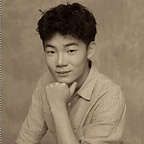The Beginning — A Reading-Journal of an Icelandic Saga
Observations; Predictions; Analysis for the Laxdaela Saga, Chapters 1~12
The Laxdaela Saga — a tome of prose documenting the histories of the People of Laxardal for over a century. With breadth there must come a rich trove of events, characters and landscapes which teem with uncharted potential for comparison, research, analysis and humanity.
In the forthcoming weeks, I will document all my observations and predictions in the form of these reading journals.
Focus: Narration Style
Saga narration thus far has been incredibly succinct and almost monotonous at times when introductions of any kind are to be made. Almost no description of landscape has been seen in the first twelve chapters, and available descriptions of character seem more to emphasise a specific trait than for the ease of visualisation. In fact, I do not think there are any attempts to immerse the reader in the storyline — there is a strange kind of detachment that can be seen throughout the passages.
Perspective-wise, there is no visible narrator. Nor is there distinctive “protagonist” yet — I must still be in the introduction. Interestingly, the exact details of every location and time-of-action for each event is all provided with the utmost accuracy, which leads me to propose a hypothesis: that the sagas are oriented toward historical documentation, and have no interest in making sense of any plot. I say this because the writing style reminds me of Herodotus’ account of Leonidas of Sparta and the Battle of Thermopylae:
“Leonidas now came to Thermopylae, with a picked force of the customary three hundred, and those that had sons; and he brought with him too those Thebans whom I counted among the number, whose general was Leontiades son of Eurymachus.” — Herodotus, Book VII, Chapter 205
Now to Laxardal:
“Olaf was married that same autumn to Alfas and the wedding was celebrated at Hvamm. Ann went to great expense with the feast, to which she invited prominent people from distant districts. She invited her brothers Bjorn and Helgi Bjolan, both of whom attended with late followings.” — Laxdaela Saga, Chapter 7
Olaf Feilan is the most favoured grandson of Unn the Deep Minded, to whom most of her property at Hvamm(the farmstead) would be left to after Unn’s death. Unn discussed the prospect of marriage and Olaf swiftly agreed, leading to this exposition.
The words are certainly not lengthy, but the timespan which it covers is astonishing. The passage of time is deceptively quick in these opening chapters, since the saga begins with Unn the Deep-Minded’s father — Ketil Flat-nose. Another note is the lack of the author in the saga — Herodotus mentions ‘I’, referring to his personal experience in documenting that history; the Laxdaela saga does not have this agent. All of the above proves my early speculation, but why would the author wish to stay anonymous? Is this a question of necessity, or were there certain social consequences for the writer of such a piece? I must do more research on the social roles of the time.
Notable Quote:
To this Ketil answered, ‘I do not intend to spend my old age in that fishing camp.’
Ketil, when asked by his sons about settling in Iceland, replies in an odd kind of disdain for the country. The differences between Noway(where Ketil resides) and Iceland, must’ve been incredibly stark, or the life of the settlers vastly difficult, for it to acquire such a reputation. This brings another question — how did this ‘fishing camp’ communicate with its surrounding lands? What place did Iceland have in the minds of the people at the time?
Also, we must appreciate how human sarcasm has never really changed much — be it the 13th century or the 21st century.
